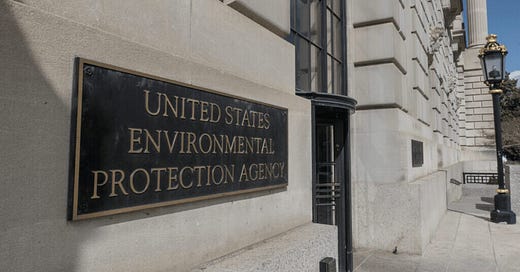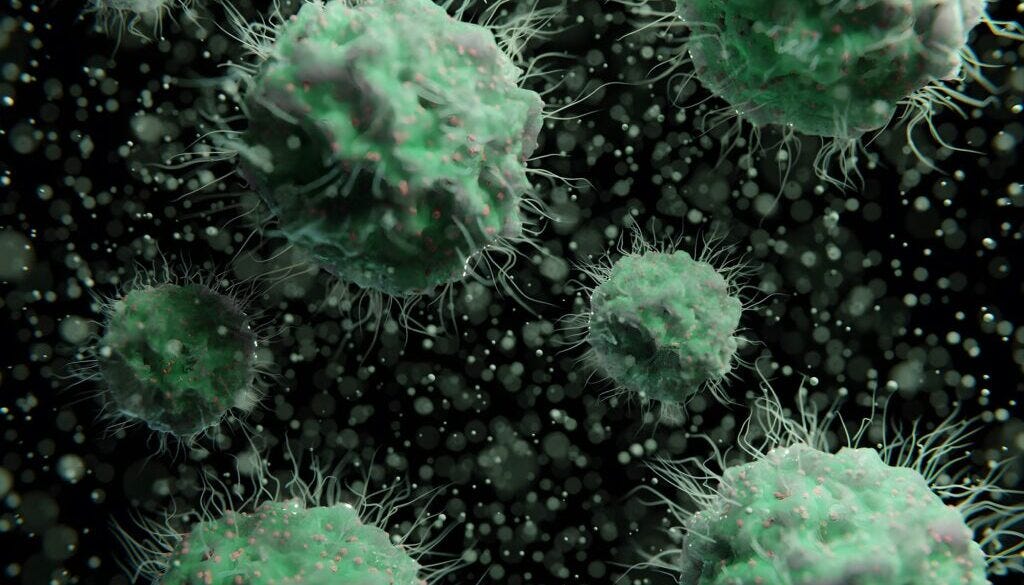Must-read recap: The New Lede's top stories
EPA improperly retaliated against scientists, inspector general says; pesticides in baby food; controversial landfill expected to close; PFAS and clean energy; microbes for PFAS cleanup
EPA inspector general says agency improperly retaliated against scientists
The US Environmental Protection Agency (EPA)’s inspector general concluded in a report released last week that three government scientists who filed disquieting complaints about their work within the agency under the Trump administration were indeed improperly treated.
The report concluded that the EPA scientists experienced retaliation for speaking out and scientifically disagreeing with leadership and others in the agency.
Most of the scientists had spoken out, internally, about disagreements concerning the safety of various chemicals, which was part of their work within the Office of Pollution Prevention and Toxics.
Among their concerns, the scientists claimed that the EPA was not doing enough to protect the public from health risks of multiple substances, and that industry pressure was affecting the agency’s ability to do its job properly. (Read the rest of the story.)
Wide variety of pesticides found in baby foods sold at major retailer
Samples of puréed apple and pear baby food sold online and at Target stores in San Francisco, Washington, DC and Minneapolis were found to contain a wide variety of pesticides, according to a new report by an environmental group.
All eight samples of the baby food products, which are made by the popular retail store’s house brand, Good & Gather, contained a class of chemicals called neonicotinoids, according to the study published last week, which was conducted by the nonprofit Friends of the Earth and has not been peer-reviewed. These pesticides are widely used in agriculture and considered toxic to insects such as honeybees. Evidence is accumulating that they may also have various negative effects on human health.
The neonicotinoids detected include imidacloprid, present in half of the pear products, and thiacloprid, present in 75% of the apple purée samples. Both are considered “highly hazardous pesticides” by the Pesticide Action Network, and each are banned for outdoor use in the European Union due to their toxicity, including to pollinators like bees.
The European Food Safety authority has stated that thiacloprid “is likely to damage fertility and the unborn child.” (Read the rest of the story.)
Controversial landfill in wine country expected to close
A landfill in California’s wine country that has drawn scrutiny for its management of toxic chemicals may be poised to close, Napa County officials confirmed last week.
Waste Connections, the large national waste management company that owns the Napa Valley-area Clover Flat Landfill, is expected to submit a closure plan to the county’s Local Enforcement Agency (LEA) “near the end of this year,” Holly Dawson, the county’s deputy CEO for communications, said in an email.
Based on recent discussions with Waste Connections, the closure process is expected to take about three to four years, and there are no plans for future operations at the site beyond long-term monitoring, said Dawson.
The development comes as a growing coalition of local activists and nonprofit groups call for Clover Flat’s closure, citing concerns about the landfill’s numerous regulatory violations, environmental impact and social justice issues. The landfill has been the site of fires and is suspected of polluting waterways in the famous winemaking region with harmful chemicals, which drain into the river that irrigates local vineyards. (Read the rest of the story.)
Debate grows over whether some PFAS chemicals have a place in clean energy
As the planet warms at an alarming rate, culminating in the hottest summer on record, nations worldwide are rapidly scaling up so-called clean energy technologies that can replace the world’s dependence on climate change-inducing fossil fuels.
More than 100 countries last year committed to triple renewable energy capacity by 2030 to try to slow climate change and reduce the related devastating human and environmental toll from increasingly frequent and extreme weather events.
In the United States, manufacturers of electric vehicles (EVs) and EV batteries have announced more than $188 billion in investments over the last nine years, with most of the money committed during the last two. And this May, the US Department of Energy (DOE) announced a $71 million investment in projects to expand access to solar power – dubbed the “cheapest form of energy” by the DOE.
But behind the enthusiasm lies a little-discussed but looming concern. Many of these technologies being heralded as tools to turn back climate change rely on fluoropolymers, a family of plastics that are part of a class of chemicals known as per- and polyfluoroalkyl substances (PFAS). Many types of PFAS are considered so hazardous that the US and many other countries have targeted them for elimination. (Read the rest of the story.)
Microbes to the rescue? Companies probe PFAS cleanup solutions
Tim Repas was tired of hauling dirt to landfills. As an environmental consultant in Canada’s oil fields, where the soil is often laden with health-harming petroleum hydrocarbon chemicals, Repas felt he spent too much time moving contaminated soil around and not enough time trying to eliminate the dangers posed by the compounds.
In 2019, he left the fields and put his degree in biochemistry to work, founding Fixed Earth Innovations, a company aimed at employing biological systems to address environmental challenges. One of the company’s first targets: The persistent and pervasive class of chemicals known as per- and polyfluoroalkyl substances (PFAS).
PFAS are widely used, including in firefighting foam, stain and water-resistant coatings and food packaging, and are ubiquitous in the environment, making exposure almost impossible to avoid. Some types of PFAS have been linked to health defects including cancer, reproductive problems and birth defects.
Making PFAS even more problematic is the fact that they are considered virtually impossible to break down, earning the moniker “forever chemicals.”
“We could spend 20 years trying to solve [the problem], but I don’t think we have 20 years to solve PFAS,” said Repas said. (Read the rest of the story.)







